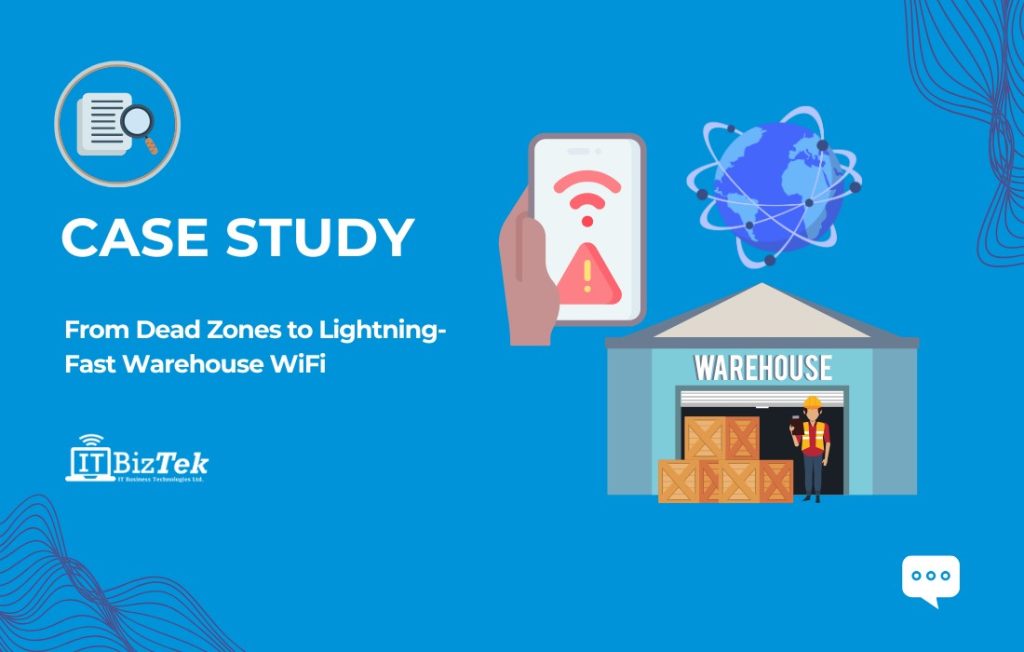In today’s fast-paced business environment, having a reliable internet connection, and understanding business internet speed requirements, is crucial. From cloud services to Voice over Internet Protocol (VoIP) and beyond, the speed of your internet can significantly influence productivity and operational efficiency. This blog explores the necessary internet speeds for various business operations, offering insights into how businesses can optimize their network to meet these demands, with a special focus on the role of IT support in maintaining optimal performance.
Check out our YouTube video for a quick overview! Once you’re up to speed, we can dive into some troubleshooting options together.
The Basics of Internet Speed for Businesses
Internet speed, commonly measured in Megabits per second (Mbps), determines how much data can be sent or received per second. For businesses, not only is the speed important but also the type of connection, which can range from broadband to fiber optic. IT support teams play a pivotal role in determining the best type of internet connection based on the requirements for business internet speeds and ensuring that the network infrastructure supports the required speeds.
Key Internet Speeds for Business Operations
- Email and Basic Web Browsing
- Required Speed: 1-5 Mbps
- Explanation: Simple tasks like sending emails or browsing web pages require minimal speeds, but when multiple employees access the network simultaneously, higher speeds become essential to prevent slowdowns.
- Cloud Services
- Required Speed: 5-20 Mbps
- Explanation: Many businesses rely on cloud services for storage, backups, and applications. These services require faster speeds to function efficiently, especially when accessing large files or using real-time collaboration tools.
- VoIP
- Required Speed: 5-10 Mbps
- Explanation: VoIP allows for voice communications over the internet. Quality of service is dependent on stable and adequate speeds to avoid delays or interruptions in communications.
- Video Conferencing
- Required Speed: 10-20 Mbps
- Explanation: Video calls and conferences are bandwidth-intensive. Adequate speeds ensure high-quality video and audio without lag, which is vital for maintaining professionalism and effective communication.
- Data Transfers and Large File Sharing
- Required Speed: 50-100 Mbps or more
- Explanation: Businesses that frequently send or receive large files need higher speeds to avoid long transfer times which can hinder productivity.
- High-Speed Trading
- Required Speed: 100 Mbps or more
- Explanation: For businesses involved in trading or those requiring real-time data analysis, high speeds are critical for receiving information and executing actions instantly.
Role of IT Support in Managing Internet Speeds
IT support teams are crucial in managing and optimizing internet speeds. Their responsibilities include:
- Network Assessment: Regularly evaluating the network’s performance and identifying areas for improvement.
- Upgrades and Configuration: Implementing necessary hardware upgrades, such as routers and switches, and configuring settings to maximize speed and efficiency.
- Monitoring: Using tools to continuously monitor internet speed and network health to address issues proactively.
- ISP Liaison: Acting as the intermediary between the business and internet service providers, ensuring that the business gets the best possible service and addressing any speed-related issues.
Enhancing Your Business Internet Speed Requirements
To enhance internet speeds, consider the following strategies:
- Upgrade Your Plan: Sometimes, the basic internet plan is not sufficient. Upgrading to a higher-tier plan can provide the speeds necessary for business operations.
- Optimize Your Setup: Ensure that your network setup is optimized for performance. This includes proper router placement, using quality cabling, and setting up adequate network security.
- Consider Dedicated Internet Access (DIA): Unlike shared connections, DIA offers a business a private internet connection, providing more consistent speeds and reliability.
Contact Us
Understanding and managing internet speed requirements is vital for any business looking to maintain a competitive edge in the digital age. With the right IT support, businesses can ensure they have the necessary speeds to support all their operational needs, from basic communications to high-end data services. Remember, an investment in your internet infrastructure is an investment in your company’s future productivity and success. Contact us to learn more about your business internet speed requirements.








